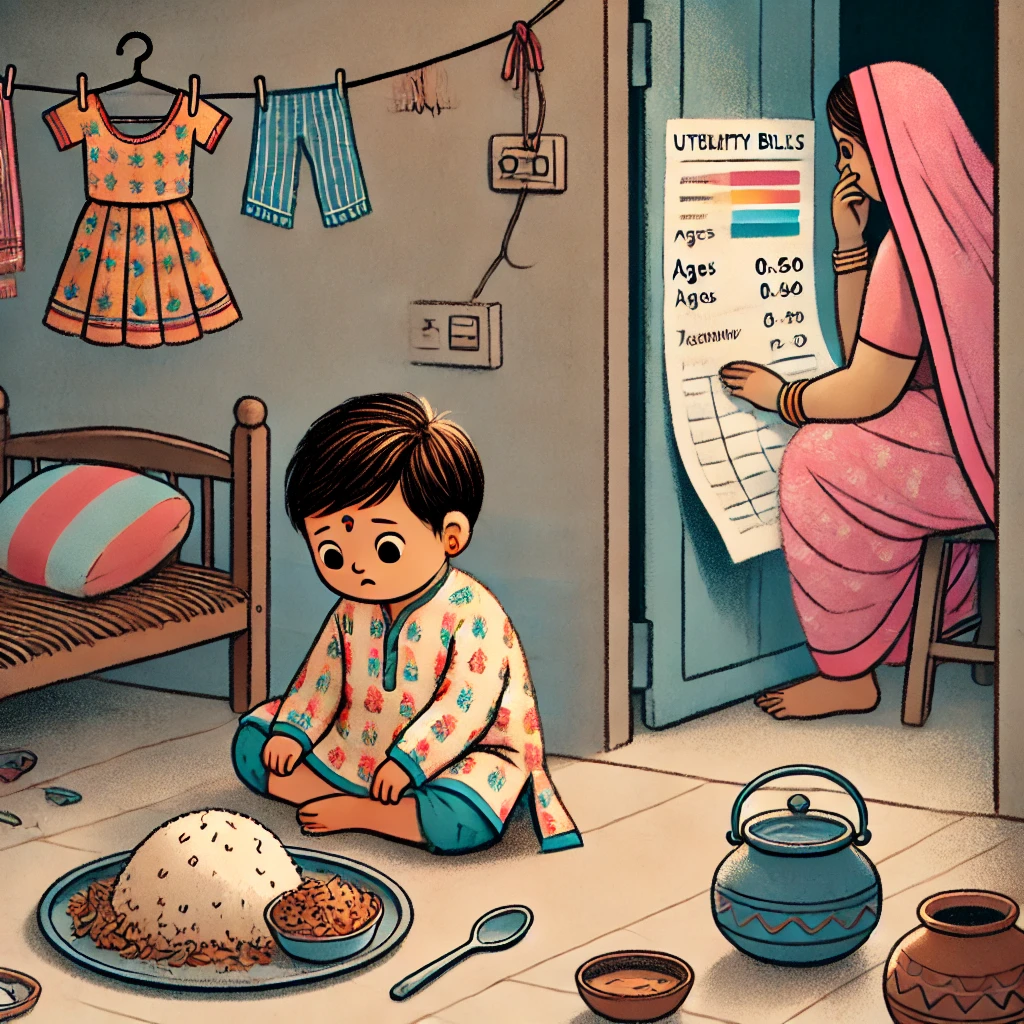Debunking Financial Myths: Money Problems for Transgender Children Aged 0-5
What Are Financial Problems, and Do They Apply to Transgender Toddlers?

When discussing the financial and societal challenges faced by individuals, the concept of “money problems” or financial struggles linked to transgender children aged 0-5 often arises in conversations. However, the very idea can be misleading and warrants thorough examination. Children in this age group, regardless of their gender identity—be it transgender, intersexual, ambisexual, unisexual, or other non-binary identifications—do not independently encounter financial hardships. The challenges they face are primarily societal or parental, stemming from misconceptions, stigmas, and societal biases rather than intrinsic financial implications.
This article explores the myths surrounding financial issues for transgender children aged 0-5, identifies potential indirect challenges, and provides clarity on how families can navigate these situations.
What Are Financial Problems, and Do They Apply to Transgender Toddlers?
- Read More for Child Financing:-https://ourfinocracy.com/category/tips-for-early-childhood/

Financial problems typically involve difficulties in meeting basic needs, such as housing, food, healthcare, or education. For children aged 0-5, these needs are the responsibility of their parents or guardians. At such an early developmental stage, children do not possess the cognitive or financial autonomy to face money-related struggles.
However, families raising transgender, gender-neutral, or gender-nonconforming children may face financial challenges indirectly linked to societal prejudices, lack of support resources, or even misconceptions surrounding their child’s identity.
Breaking Down the Misconception
1. Do Transgender Toddlers Face Financial Hardships?
Children aged 0-5 are largely dependent on their families for financial well-being. Terms like “transgender financial issues” or “gender-bending money problems” in this context are misapplied. These young children do not engage in economic activities or decision-making, and their needs are universal at this stage, irrespective of their gender identity.
2. Parental Financial Burden: The Real Challenge
While children themselves do not experience financial hardship, families supporting a transgender or gender-nonconforming child may encounter challenges like:
- Healthcare Costs: Accessing supportive healthcare services, counseling, or educational materials can incur additional costs.
- Community Support Resources: Limited access to inclusive daycare or playgroups may lead to higher expenditures on specialized care.
- Relocation Costs: Families in unsupportive communities may consider relocating to areas with better resources, which can strain finances.
Indirect Financial Challenges for Families

Healthcare Costs for Gender-Nonconforming Kids
While children under the age of 5 do not undergo gender-affirming treatments or surgeries, healthcare costs might include counseling or therapy sessions for parents navigating this journey. Inclusive pediatricians or specialists might charge higher fees, creating a financial burden.
Childcare and Education Expenses
- Money Engineering for Your Little Investor https://ourfinocracy.com/make-learning-about-money-engineering-and-piggy-bank/

Enrolling a transgender, intersexual, or unisexual child in daycare or early learning centers that promote inclusivity can be challenging in some regions. If such resources are unavailable, parents might opt for private daycare, which can be costly.
| Expense | Traditional Families | Families with Transgender Children |
|---|---|---|
| Daycare Fees | Standard | Higher for specialized, inclusive care |
| Therapy and Counseling | Minimal | Higher for navigating gender identity |
| Relocation Costs | None | Higher if relocating to inclusive areas |
Debunking Common Myths
Myth 1: Transgender Children Need Expensive Medical Interventions Early On
Medical interventions, such as hormone treatments or surgeries, are not relevant for children aged 0-5. At this stage, affirming their identity often involves social support, acceptance, and fostering a positive environment rather than incurring medical expenses.
Myth 2: Gender Identity Complicates Basic Needs
Basic needs like food, clothing, and shelter are universal and do not vary based on gender identity. The perceived financial disparity often stems from societal bias, not actual cost differences.
Myth 3: All Transgender Children Face Financial Barriers
Not all families of transgender, asexual, or unisexual children face financial difficulties. Many families manage their finances effectively, leveraging free or affordable community resources to support their child’s development.
Steps to Support Families Financially

1. Seek Inclusive Resources
Local LGBTQ+ organizations often provide free counseling, support groups, and daycare recommendations tailored for gender-nonconforming children.
2. Leverage Government Support
Several countries and states offer grants, tax deductions, and benefits for families of transgender or gender-nonconforming children. Understanding and utilizing these benefits can ease financial pressure.
3. Promote Financial Literacy for Parents
Parents navigating the challenges of raising a transgender child may benefit from financial planning workshops to allocate resources effectively.
Why the Myth Persists
The belief that transgender children face intrinsic financial challenges persists due to the broader societal misunderstanding of gender identity. Labels such as “unisexual” or “sexless” are often misinterpreted, leading to unnecessary stigma. It is essential to differentiate between societal challenges that impact families and the actual financial needs of children in this age group.
What financial challenges do families of transgender children face?
Families may encounter higher costs for counseling, daycare, or relocating to more inclusive areas. These challenges are indirect and stem from societal factors rather than the child’s gender identity.
Are transgender toddlers subjected to discrimination?
While toddlers themselves may not directly experience discrimination, their families might face societal biases that could lead to financial difficulties.
Do unisexual or gender-nonconforming children have specific financial needs?
No. Basic needs like food, clothing, and shelter remain the same. Any additional costs are usually related to inclusivity resources or counseling services.
How can society help reduce financial pressures on these families?
Society can support these families by promoting inclusivity in healthcare, education, and community services, reducing the need for costly specialized resources.
Are there government programs to support families of gender-bending children?
Yes. Many governments offer financial aid, counseling services, and educational support programs for families navigating gender identity issues.
Can families of transgender toddlers face challenges with education?
Yes, if local educational facilities lack inclusivity. Families may need to seek alternative or private schooling, which can be costly.
Conclusion
The concept of financial struggles for transgender children aged 0-5 is rooted in misconception rather than reality. At this tender age, the challenges are more societal than financial. It is imperative to shift focus from perceived issues to actionable solutions, such as promoting inclusivity and providing accessible resources for families. By fostering a supportive environment, society can ensure that all children, regardless of their gender identity, thrive equally.












